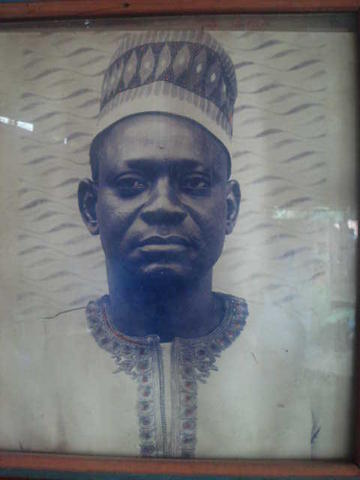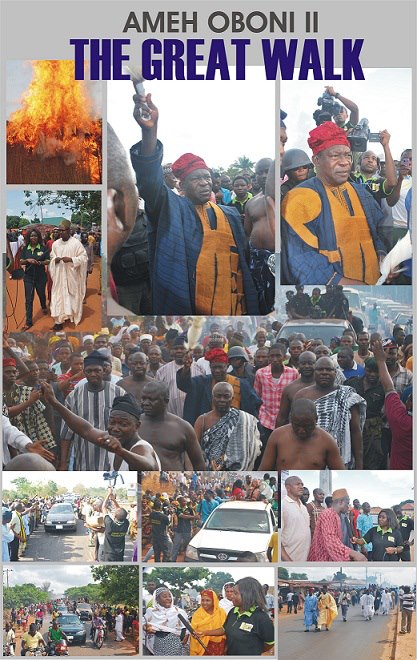
By David Abutu
Introduction
Education has received relatively low funding in Kogi State compared to other sectors and the failure of Universal Basic Education has made humanitarian intervention inevitable in Igala-land.
An education is a child’s passport out of poverty and helping the children in our rural communities in Igala-land will lift them out of extreme poverty. Revitalization of primary education is required at a time when the contradiction and the unfairness of the global economic system have become clear, suggesting that the current system is not sustainable and efficient.
Economic and social development is dwindling due to the international economic order. The public school system has failed and is grossly under-funded to the detriments of our future leaders. This sector is under –funded in all communities in the State and Nation.
Primary education refers to the education of which children receive from the age of 3-11 years. It is the foundational level of educational system which runs for six years, and it is aimed at developing basic literacy, and communication skills.
In most rural communities in Igala-land 2 out of 5 children do not attend school making enrollment rate less than 20% while 85% of the rural men and women cannot read and write.
The most prized possession that anyone can have in this part of the world is education because it is the foundation for higher living standards and an important tool in the long-term eradication of poverty.
How Project Igala creates educational opportunity
Project Igala has rebuilt, furnished and provided for more than ten education projects including:
- Books donation
- Chairs
- Desks
- Supplies
- Reconstruction and rehabilitation, some projects are in the conception stage while others are on-going.
Project Igala partners have provided scholarship awards to over 2000 children and today, children are receiving education in dramatically improved learning environment. However, further improvement, development is required in the following Local Government Areas
Ø Olamaboro
Ø Omala
Ø Idah
Ø Ankpa
Ø Ibaji
The disappointment experienced in the implementation of the Universal Basic Education efforts of the Federal Government informed NGO-inspired community based initiatives that have yielded remarkable achievement and improved learning environment as demonstrated in our presentation as attached.
Areas of Intervention
The original concept of Project Igala was evolved based on first hand information from the various Head Teachers and the Local Government authorities and an Education Committee. The original approach was focused on award of scholarships to encourage higher enrollment but there was a need to outline a strategy which will respond more equitably, appropriately and more effectively to a larger group or communities in Igala land.
The principle behind this is accessibility and wider coverage on the basis of need and appropriate technology. Learning has become digital and the available resources to the Project Igala is slim in expression of what needs to be accomplished in terms of quality education and better learning environment.
Capacity building such as teacher orientation is an immediate area of intervention required. Better resourced education programming would facilitate the orientation of an absolute quantifiable number of teachers, provide very basic teaching and learning materials and promote vital health and amenities to create for better learning environment. Funding education is required to reopen and resource schools to establish additional facilities in areas of facility construction and rehabilitation of schools.
Our Appeal
We all want economic prosperity, health and stability for people and families, and we all want the opportunity for our children to do better than we did. We have a major budget shortfall and we make a passionate appeal to individuals, organisations and groups to come to our aid at this auspicious time. We take a cue from the maxim “give a man a fish, feed him for a day. Teach a man to fish, feed him for a lifetime.”
This is a true principle that has stood the test of time. Since we all agree that our efforts would be better spent teaching a man to fish than just handing him one, perhaps we should agree to keep our education system accessible to all people to learn how to fish. Humanitarian aid to enhance educational development plays a vital and essential role in local capacity building and facilitating the rebuilding of the fast collapsing education system.
This will help to ensure essential, immediate and long-term benefits. In immediate terms, it enables children learn about health, hygiene and the environment. When in an appropriate learning environment, no matter how basic, children are less likely to be recruited into mischief making groups that abound in our society today. Education provides hope, protection, promotes justice and respect for human rights and enhances peace-building for children, parents, communities and the Nation. Greater recognition of the need for intervention as part of humanitarian response is the political trend in our Nation today. There is severe lack of all the very basic resources that are essential for providing quality education in Igala land.
Project Igala is a Non-Governmental Organisation with special interest in meeting the educational aspirations of Igala’s Generation-Next through the provision of scholarships, educational materials and facilities. Our efforts have led to several key developments in humanitarian funding for education in Igala land.
If our children do not have access to quality education today, there is no way they can contribute to the development of our country tomorrow. Your immediate intervention will reduce our young people’s vulnerability to armed recruitment, trafficking, prostitution for the girl child and other prominent dangers in a risky environment such as Nigeria. For support, please contact us at info(@)igalaproject.org
Thank you


